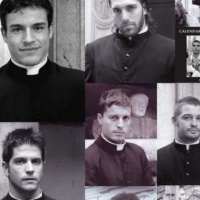One summer holiday from University saw D and M and I on holiday in Ireland.
We hired a cabin cruiser to sail (via the many locks on the Grand Canal) from just south of Dublin to Athlone – just before the latter reaches the River Shannon.

We three inexperienced but intrepid sailors had a marvellous time until one evening when we docked en route in a small town and went to “the dancin'” – our first experience of hearing a “showband” and impressive they were too – and of the strange custom (to us) of clearing the floor after each dance.
We got back to our boat late and discovered that it had been broken into during our absence, although only one small thing had been taken (I can’t remember what – but it was inexpensive)
It was decided, however , to contact the Garda – so one of my pals went to find a phone box (no mobiles in those far off days).
Half an hour later, a “jolly” policeman appeared. He had obviously worshipping at the altar of Bacchus that evening, as his gait was so unsteady that we had to help him cross over to our boat which was double moored.
Unsteadily, he staggered into the cabin and plonked his ample frame on the bench.
“It will be restorations” he began – enigmatically
We looked at each other and then at the perspiring stout police-officer. “But nothing’s been restored; it’s been stolen!”
“Not ‘restorations’ – I mean ‘reparations'” he answered – even more mysteriously.
I thought of reparations in payment for past British actions in the Emerald Isle- but was our law enforcement friend an historian of sorts.
So I asked him, “What are you implying?”
Cryptically – “It’s because you’re from the North”
“No, we’re from the West (west of Scotland)”
“Derry way?”
“Glasgow”
“Aye, I’ve heard of the ‘Brig’ton Billies’ – that’s it, then – I’ve deducted (sic) it – it’s retribution ….. that’s the word I was looking for” said he, sleuthfully and triumphantly.
“Right,” said Sherlock, “I’ll be takin’ down yer details”, taking out his police notebook and a stub of a pencil.
Now this part is genuinely true – as the skipper of the ‘Vital Spark’ would have said, “If Dougie were here, he would tell you”: he ran out of space on the page, so tore off a blank page from the back of his little book and sellotaped to the side of the page on which he had written, in order to continue his notes!
at one point he asked what my occupation was and when I replied that I was a theology student, he asked if I were studying for the priesthood. When I replied that I was a Protestant, he muttered, “Aye, ’twill be retribution, for sure”
We offered him a drink – he knocked back a Jamiesons in one gulp, then we helped him off the boat and watched, as he staggered away into the night – never to be seen again…… and we heard no more of the matter.
btw we continued our journey to Athlone, and having tuned into Radio Athlone as a teenager, discovered a small building (it must have been a transmission post) with the Radio station’s logo on the door.
I knocked. The door opened and a wee leprechaun of a man looked at us furtively and not without a degree of suspicion.
“May we have a look inside, please?”
“Are you from the North?”
“No”
“OK, in you come!”


















